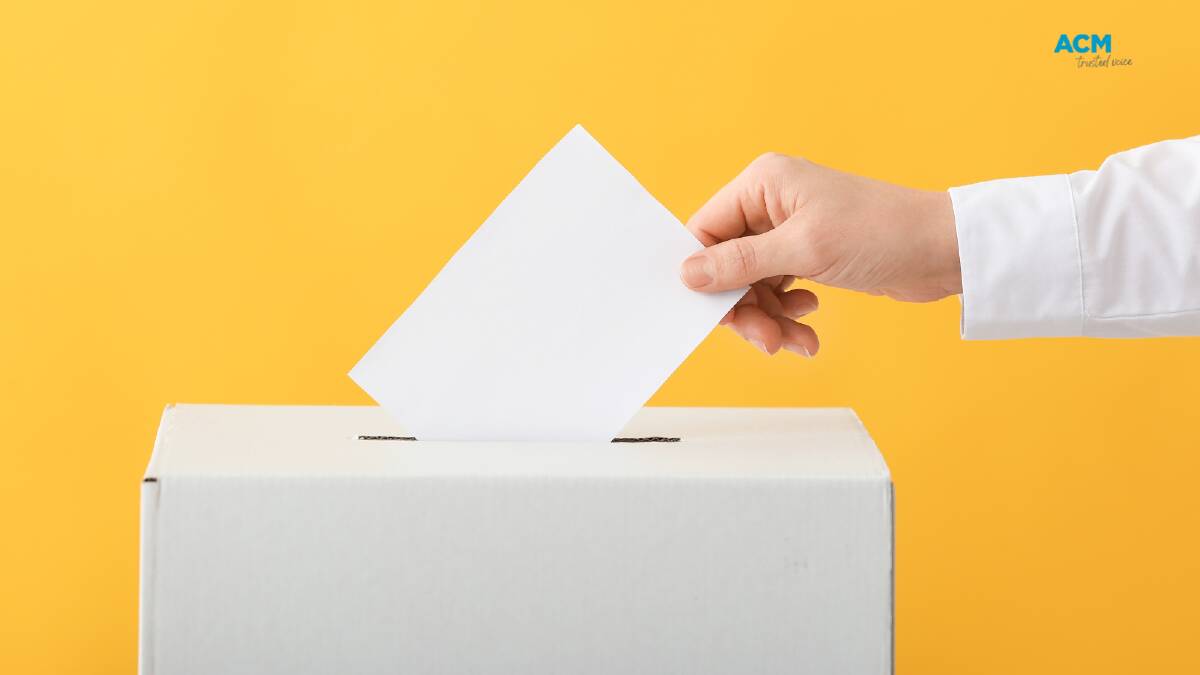There are less than three weeks until the smells of cheap beef sausages and school cakes waft across NSW.
Subscribe now for unlimited access.
$0/
(min cost $0)
or signup to continue reading
A state election is looming and as March 25 draws closer, here's what you need to know on how to vote.
Firstly, it is compulsory to vote in all federal, state and local government elections if you are an eligible voter - that is, an Australian citizen 18 years old or over.

The fine for not voting in NSW is $55. If you do not respond within 28 days, you will receive a final notice before the matter is referred to Revenue NSW. A further $65 fee will be charged if the matter is referred.
You can enrol to vote if you are aged 16 or over, an Australian citizen and have lived at your current address for at least one month.
You are encouraged to enrol before you turn 18 but you can not vote until on or after your 18th birthday.
READ MORE:
Enrol online or by printing a form for the Australian Electoral Commission. The enrolment is valid for all elections - not just those for the state government.
All Australian elections use a silent voting system. No one else will know who you vote for unless you tell them.
Voting options
Voting as usual on election day
Attending a polling booth in your electorate on election day is the most common way to vote in NSW. Booths are open from 8am to 6pm.
You will be asked your name, date of birth, address and if you have already voted.
Voters fill out ballot papers in a booth, before folding papers and placing them in a ballot box. If you have never done this before, you will be shown where to go once you get to the polling station on March 25.
There are other options for voting in NSW, too. These options are known as 'declaration voting' and you can find out about each one below:
Silent voting
People who believe that having their address printed on the electoral role may put them in danger can apply to be a silent elector. You will still need to provide your full name and birthday at the polling booth, but your address will not be included.
Absent voting
Some electors may be outside of their electorate on March 25. If this applies to you, you can vote at a different polling booth. You will need identification such as a license and will be given a ballot paper specific to your electorate. This must be returned to staff instead of being placed in the ballot box. You will also fill out a declaration envelope to ensure your vote is counted and you are marked off the electoral role.
Enrolment new voting
If you have not enrolled to vote by the election date, you can vote as normal at a polling booth. This works in a similar way to absent voting - you will be required to show identification documents and may be asked further questions to verify who you are. You will be given a declaration envelope to fill out.
Postal voting
Some people are unable to attend a polling booth on election day. Voting via post is an option in this circumstance. You must apply online by the Monday before an election - in this case, the final day to apply is March 20. Your vote must be received by the NSW Electoral Commission by 6pm on Thursday, April 6.
Pre-poll ordinary voting
Early voting centres are set up for people who cannot attend a polling booth on March 25. These are usually located at an election manager or returning officer's office. Centres open from March 18 - the Saturday before election day.
Voting at declared institutions and facilities
Some residential aged care homes and hospitals are visited before election day. Residents can vote in person at this time.
All other nursing homes and hospitals are sent postal vote applications prior to election day.
Telephone assisted voting
Voters with low vision can apply to vote over the phone. Applications must be submitted between March 20 and March 24 but you can vote up until 6pm on election night.
You can call the NSW Electoral Commission on 1300 248 683 to enrol. You will be given a unique application ID and you will select a PIN number. This system ensures your vote is confidential.


